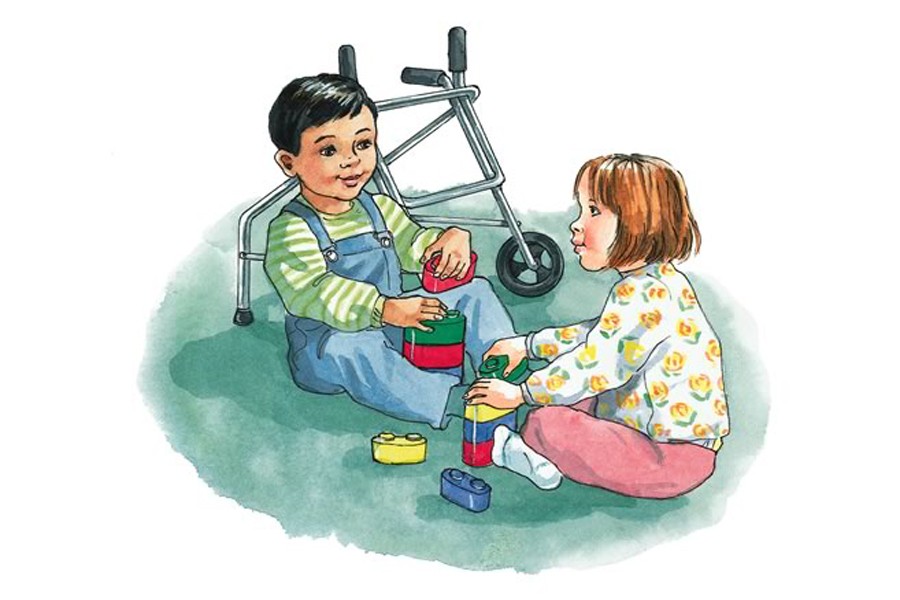Thomas Alva Edison, being mentally challenged in the childhood, was rejected from his school. But the special care and management of his mother helped him to overcome his disability. Later, he changed the world by breakthrough inventions and acquired more than 1000 patents of his creation.
Modern science does not quietly surrender to disability since every human being has hidden talent embedded within himself/herself. The onus is on society to explore the talent of every child with special needs and groom them up into human resources. Let us integrate them with the mainstream workforce.
In our society, if a child is born with special needs his/her parents become frustrated over time. There are even cases when parents of children with special needs shun friends and relatives. At times, some of them even feel shy while discussing the matter with the health care providers. We should help them to overcome their situation and encourage them to face the challenges, fighting the odds and transforming those children with special needs into human resources. THE CHARACTERISTICS OF THE CHILDREN WITH SPECIAL NEEDS: Children with special needs can be identified from the state of being fetus. But the best time to identify them is until they attain two years of age after their birth.
Regular check-up and some investigations like fetal Anomaly scan, Amniotic fluid study and Karyotyping tests during the antenatal period of a mother help physicians to diagnosis the possibility of giving birth of a child with special needs.
Following observations/characteristics of any newborn, including infants, also indicate a child with special needs:
1) The baby is too much soft to handle. He/she has no active movements while muscle tone is poor; 2)The baby does not exchange smile during first six to eight weeks after birth; 3) The baby does not make any eye contact nor does communicate with people; 4)The baby cannot sound bu, bu or da, da, etc. at the age of five months; 5) At the age of six months, the baby cannot sit properly; 6) At the age of one year, the baby cannot stand up or cannot say a few words; 7) At the age of one year and six months, the baby cannot walk; 8) At the age of two years, the baby does not say small and simple sentences with only two words; 9) The baby should say complete sentences within three years of his/her age; 10) If the child does not like to mix with people or does not want to go outside home; 11) If the child does not like any gathering; 12) If the child has a repetitive behaviour, such as he/she wants to do something again and again; 13) If the child is very much dependent on his routine life; 14) If the child become aggressive or hyperactive sometime; 15) If the child has a tendency to hand flapping or walk on his toes; 16) If the child has a tendency to injure itself or others.
HOW WE CAN MANAGE CHILDREN WITH SPECIAL NEEDS: After the initial assessment, we should admit the child with special needs in a specialised school as early as possible. Besides, we should give therapies to the special child according to his/her need. There are many other therapies for teaching them the activities of their daily living. We can give them education by the IEP (Individual Educational Plan) programming. We can also give them vocational training to make them independent and thus they can be integrated into the mainstream workforce in their life.
The Government should facilitate the development of children with special needs by providing required infrastructures, facilities and resources. It is no magic but the combined efforts of government, parents, special educators, health care providers, friends and families can transform the children with special needs into capable human resources for tomorrow.
Dr. Sonia Sultana (MBBS) is pursuing MS (Speech & Language Pathology) at the Department Of Communication Disorder, University Of Dhaka.


